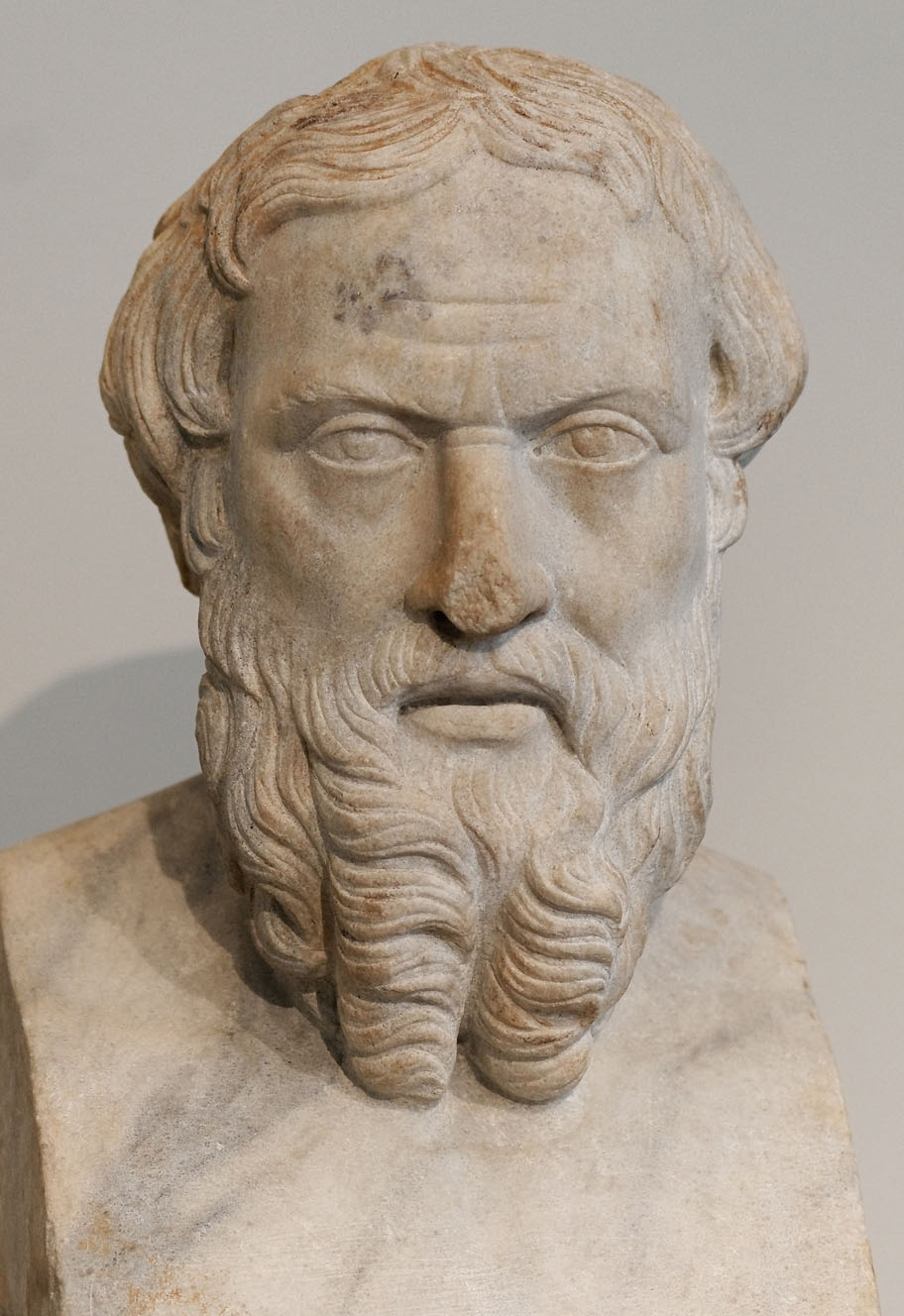Herodotus
Born:
C. 484–425 BCE
Died:
Year and circumstances not well-documented
Herodotus was an ancient Greek historian often referred to as the "Father of History." Born in Halicarnassus (modern-day Bodrum, Turkey), Herodotus is best known for his work "Histories", considered one of the foundational works in the field of historiography.
Early Life: Herodotus was born in Halicarnassus, which was then part of the Persian Empire. His family was likely involved in the politics of the city. He traveled extensively, visiting various parts of the known world, including Egypt, Persia, and the Greek colonies in Asia Minor.
Historical Methodology: Herodotus wrote "Histories" in the mid-5th century BCE, presenting an account of the Greco-Persian Wars (499–449 BCE) and the events leading up to them. His approach to history was distinctive for its narrative style, incorporating geographical and cultural details along with historical events. He aimed to explain the causes and consequences of events.
Inquiry and Research: Herodotus emphasized the importance of inquiry (historia in Greek), conducting extensive research, interviewing people, and relying on a variety of sources to gather information. He explored cultural differences, customs, and traditions, providing a more comprehensive view of the societies he encountered.
Greco-Persian Wars: "Histories" begins with an account of the rise of the Persian Empire, followed by the events leading up to the Greco-Persian Wars and the conflicts themselves, including the battles of Marathon, Thermopylae, and Salamis. Herodotus examined the motives and actions of the key figures involved, including Persian kings such as Cyrus and Xerxes, as well as various Greek city-states.
Cultural and Ethnographic Descriptions: Herodotus's work includes detailed descriptions of various cultures, societies, and geographical regions, providing readers with a broader understanding of the known world at that time. He delved into the customs, religions, and daily lives of different peoples, creating a historical and ethnographic record.
Criticism and Legacy: While Herodotus is celebrated for his pioneering work in historiography, he also faced criticism from later historians, including Thucydides, for his reliance on hearsay and entertaining anecdotes. Despite this, Herodotus's influence on the writing of history has been profound, and his approach to narrative history has inspired countless historians over the centuries.
Death and Epitaph: The year and circumstances of Herodotus's death are not well-documented. Some accounts suggest that he died in Thurii, a Greek colony in Italy. Herodotus's epitaph, according to tradition, emphasizes the scope and purpose of his work: "Herodotus of Halicarnassus, here I lie. What I did, what I thought, what I was, is hid; As time hath shrouded over me, so the same Shall oblivion shroud me in a winding sheet."

Quick Facts
- Herodotus's "Histories" is a significant historical account of the Greco-Persian Wars and a foundational work in the discipline of history.
- He emphasized research, inquiry, and storytelling, leaving a lasting impact on the approach to writing history.
Further Reading
Art &
Architecture
Ancient Greek art and architecture, with its harmonious proportions and timeless elegance, continue to inspire awe and admiration millennia later.
Discover
Greek Mythology & Mythical Characters
Greek mythology, a rich tapestry of gods, heroes, and mythical creatures, captivates the imagination with its tales of love, betrayal, and epic adventures that delve into the depths of the human psyche.
Discover
Ancient Greek History
Ancient Greek history, marked by remarkable achievements in democracy, philosophy, and warfare, shaped the foundation of Western civilization, leaving an indelible legacy of innovation and cultural influence that continues to resonate to this day.
Discover
Ancient Greek Olympics
The ancient Greek Olympics, held in Olympia every four years, celebrated athleticism, unity, and cultural pride, serving as a testament to the enduring spirit of competition and excellence that transcends time and borders.
Discover
Ancient Greek Wars
Ancient Greek wars, such as the Persian Wars and the Peloponnesian War, were pivotal conflicts that shaped the course of history, highlighting the struggle for power, independence, and the clash of civilizations in the ancient Mediterranean world.
Discover
Ancient Greek Culture and Society
Ancient Greek culture and society, characterized by its emphasis on art, philosophy, and civic engagement, fostered a vibrant intellectual and social landscape where innovation flourished, democracy thrived, and the pursuit of knowledge and excellence was celebrated as fundamental values of civilized life.
Discover